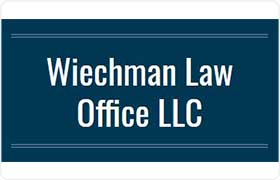Osage County, KS Workout Lawyers, page 2
Sponsored Law Firm
-
 x
x

Click For More Info:
-
Wiechman Law Office LLC
1101 Sw 10th Ave. Topeka, KS 66604» view mapBankruptcy & Debt Law A Better Way Forward
Our mission is to guide our clients to a better way of life. We are here to listen. We are here to help. We’ll find a solution that fits you and your situation.
800-969-4051
Not enough matches for Osage Workout lawyer.
Below are all Osage lawyers.
 Kerry Gasper Topeka, KS
Kerry Gasper Topeka, KS
